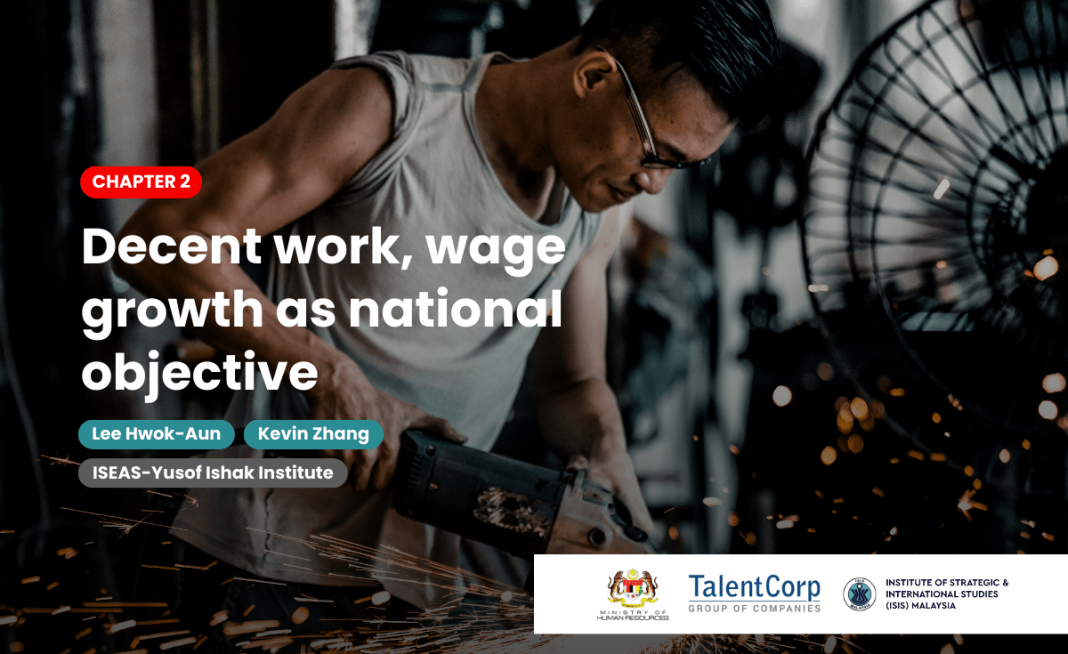In this chapter, Lee Hwok-Aun and Kevin Zhang of ISEAS-Yusof Ishak Institute review Malaysia’s labour standards, detailing its transition out of a low-wage regime through the long-awaited introduction of a minimum wage in 2013. This represented a significant step towards achieving decent work in the country. But the effects of Covid-19 have been drastic, wiping out at least a few years of wage growth for low-wage workers, while exposing the country’s pervasive low-wage issues and inadequate labour institutions. The authors argue that minimum wage while safeguarding the well-being of low-wage workers, has its limits. The authors critically consider the issue of a living wage as a concept that aligns more closely to the ideals of “decent work”. Policy solutions thus require a focus on unemployment assistance and job protection, wage growth and improving work and living conditions for all workers, including migrants.
ISIS Malaysia engages actively in Track Two diplomacy, and promotes the exchange of views and opinions at both the national and international levels.
Contact us: info@isis.org.my
© Copyright 2024. ISIS Malaysia (99856-H) All rights reserved.





